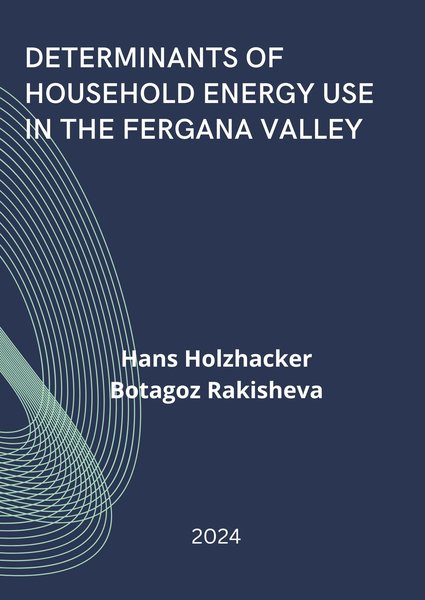




Year: 2024
Collections: Scientific Publications
Topics: Energy
Authors: Hans Holzhacker, Botagoz Rakisheva
Countries: Kyrgyzstan, Uzbekistan, Tajikistan
Source: Central Asian Journal of Sustainability and Climate Research
In July-August, 2023, CAREC Institute, Public Opinion Research Institute, and Asian Development Bank Institute conducted a sociological survey on household energy use in the Fergana Valley spanning over the Kyrgyz Republic, Tajikistan, and Uzbekistan. The following article uses the data from that survey for investigating what determines the choice of different energy types for heating. The article concludes that high household expenditures for coal and high awareness of the harm fossil fuels can inflict on the environment and family health are insufficient to trigger a large-scale shift towards cleaner energy. To motivate households for such a shift a substantial increase in fossil fuel prices compared to electricity and other clean energy is required. This might call for a sales tax on coal. However, energy expenditure already accounts for up to one-third of household income. Low- and middle-income households would need to be compensated for increased energy spending to avoid social hardship and a backlash against such a tax.
Downloads:
In July-August, 2023, CAREC Institute, Public Opinion Research Institute, and Asian Development Bank Institute conducted a sociological survey on household energy use in the Fergana Valley spanning over the Kyrgyz Republic, Tajikistan, and Uzbekistan. The following article uses the data from that survey for investigating what determines the choice of different energy types for heating. The article concludes that high household expenditures for coal and high awareness of the harm fossil fuels can inflict on the environment and family health are insufficient to trigger a large-scale shift towards cleaner energy. To motivate households for such a shift a substantial increase in fossil fuel prices compared to electricity and other clean energy is required. This might call for a sales tax on coal. However, energy expenditure already accounts for up to one-third of household income. Low- and middle-income households would need to be compensated for increased energy spending to avoid social hardship and a backlash against such a tax.
По всем вопросам сотрудничества обращайтесь по эл.адресу или телефону: